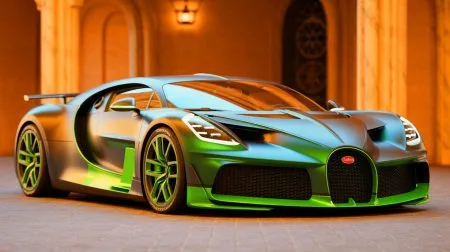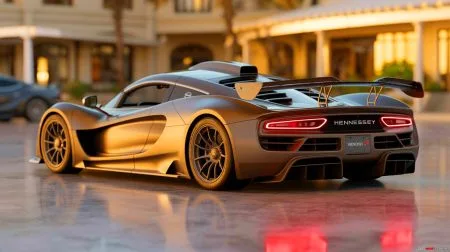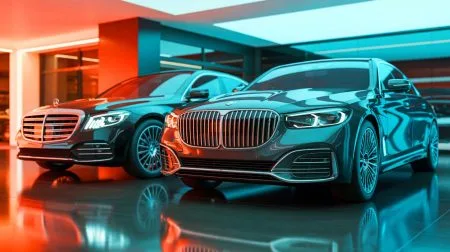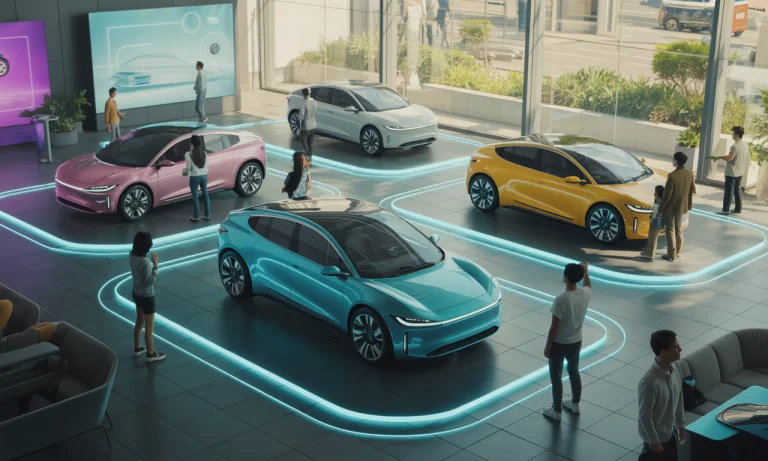Every morning, Zoe scrolls through her TikTok feed and sees countless videos about electric vehicles, futuristic dashboards, and hacks to personalize car interiors. For the generation born into broadband and social media, buying a car in 2025 is less about horsepower and more about identity, sustainability, and seamless tech integration. Gen Z, a cohort that never knew a world without smartphones, is shaking up the century-old rules of car culture. With more than 6 million Zoomers planning to buy or lease a vehicle in the coming year, they’re forcing legacy brands and newcomers—like Tesla, Rivian, and Polestar—to completely rethink their playbooks. Price still matters, but eco-friendly options, online buying journeys, and the ability to customize and flex on social media have become just as crucial. From electric fantasies to digital showrooms, what Gen Z expects from tomorrow’s cars is changing the very shape of the industry. The road ahead promises more than just a new set of wheels—it’s shaping up to be a revolution.
Gen Z Car Buying Trends: Tech, Incentives, and the Meaning of Ownership
Inside dealership windows, Clara and her friends debate the allure of a Rivian or the minimalist cool of a Polestar. According to recent industry surveys, 68% of Gen Z value car ownership—a far cry from the stereotype of indifferent ridesharers. The change has been driven by a mix of pandemic-era need for independence, skepticism about outdated public transit, and the quest for self-expression through personal vehicles.
But how they buy—and what they crave from brands like Tesla or Lucid Motors—looks radically different from older generations. While over half prefer battery electric or plug-in hybrid vehicles, a whopping 63% now lean toward hybrids, balancing eco concerns and convenience. And price is only part of the equation. 42% say dealer incentives sway their decision, far more than boomers, yet only 55% would buy strictly on price. Today’s Zoomer wants clear incentives, tech-driven simplicity, and social proof from peers or influencers as much as a low sticker tag.
| Generation | Ownership Interest | EV/Hybrid Preference | Influence of Incentives | Price-Driven Buyer (%) |
|---|---|---|---|---|
| Gen Z | 68% | 63% | 42% | 55% |
| Boomers | 57% | 28% | 26% | 74% |
Ultimately, the lines between online and offline buying continue to blur. Some 38% are willing to complete a purchase entirely online, yet almost half still want face-to-face access to dealerships for peace of mind and convenience. For a deeper dive on these hybrid sales models and best fuel-efficient cars for Gen Z, check out this special report on new buying habits.
Electric Dreams: Why Gen Z Looks Beyond Gasoline
The parking lot has become a battleground of style, tech, and eco-consciousness. Zoe’s friend Malik dreams of showing off his Lucid Motors sedan as much as racking up EV-only miles. This cohort, influenced by climate activism and stringent emissions laws, has propelled established brands and disruptors—think Tesla, Hyundai, Kia, BYD, Volkswagen—into an electric arms race.
Gen Z’s love for plug-ins isn’t just marketing hype. Surveys show a majority actively seek battery electric or hybrid models, with range anxiety gradually receding thanks to advances by BYD and Volkswagen. Even top contenders like Honda and Ford have overhauled their EV lineups to chase youth trends, launching connected vehicles perfect for influencer road trips or coding a playlist on the go. Those curious about future interiors and how tomorrow’s cars are being shaped by digital natives can explore innovative concepts here.
| Car Brand | EV/Hybrid Models | Innovations for Gen Z |
|---|---|---|
| Tesla | Model 3, Model Y | Autopilot, in-app customization |
| Hyundai | Ioniq 5, Kona Electric | Subscription services, sustainable materials |
| BYD | Han EV, Atto 3 | Affordable pricing, fast-charging tech |
| Rivian | R1T, R1S | Adventure-ready, customizable UX |
The shift isn’t siloed to just powertrains. Car buying in this generation means turning to AI tools for research, leveraging reviews on YouTube and Instagram, and double-checking everything from sustainability credentials to resale value before clicking “buy.” You’ll find more on automaker innovation and future concept cars right here.
The New Showroom: Online, Social, and Always Personalized
When Justin wants to test-drive a new Kia, he’s just as likely to watch a YouTuber’s week-long review or scroll Polestar’s interactive configurator as step foot in a dealer. For this digital generation, 38% are ready to purchase online—from first click to final handshake. Yet the story isn’t as simple as a digital takeover. Over 43% admit they wouldn’t close a deal without a physical dealer, up significantly from last year, emphasizing the hybrid path of the modern showroom.
Dealerships are learning to adapt. Many now offer seamless digital journeys, curbside delivery, and even free virtual tours via VR—a nod to the Gen Z expectation of instant, frictionless transactions. Forward-thinking brands and outlets are partnering with platforms like Instagram and TikTok to create buzz, host Q&As, and spotlight user stories about their latest Ford or Honda. If you want to explore the turbocharged world of modern engines and what it means for this tech-first audience, take a look here.
Hybrid buying doesn’t just help with confidence; it delivers flexibility. Subscription models and same-day tax refund incentives—with services like Tax Max making down payments within hours—let Gen Z keep their options open, a major draw in an age where flexibility trumps commitment. Those curious how digital sales are changing the retail game can find more on latest innovations and trends at this analysis.
Inside Gen Z’s Car Culture: Identity, Safety, and Expression
The styling of a BYD dashboard or the sleek lighting of a Volkswagen isn’t just functional—it’s personal branding. For Gen Z, the car interior is a backdrop for stories, study sessions, or even remote work. Connected infotainment, ambient lighting, modular storage, and AR displays are no longer luxuries but expectations.
Safety is equally important. With features like AI-assisted cruise control and lane-keeping on tap in Hyundai, Ford, and Polestar models, peace of mind for late-night commutes or cross-country treks is heightened. Expression weaves through every choice. Whether wrapping a Kia in unique colors or customizing a Lucid’s light signature, these buyers demand to stand out while feeling secure and connected. A peek into tomorrow’s bold interiors and how design choices impact buying can be found here.
FAQ
What key features do Gen Z buyers expect from cars in 2025?
Gen Z expects intuitive tech integration, extensive connectivity, eco-friendly powertrains, and personalization options. They value hybrid and electric models from brands like Tesla and BYD, plus digital-buying conveniences.
How important is dealership experience for Gen Z?
Dealerships remain vital, with half of Gen Z preferring at least some in-person assistance for complex purchases or paperwork. However, seamless digital experiences are equally non-negotiable.
Which brands are resonating most with Gen Z in 2025?
Tesla, Rivian, Polestar, Lucid Motors, Hyundai, Kia, BYD, Volkswagen, Honda, and Ford all compete for Gen Z attention by emphasizing electric offerings, innovative tech, and social media engagement.
Why are incentives more effective with Gen Z than with older buyers?
Gen Z responds strongly to clear incentives like rebates and promotions, viewing them as signals of transparency and responsiveness—unlike boomers, who focus more on baseline price alone.
Where can I learn about fuel-efficient cars and new car innovations?
You’ll find up-to-date lists and reviews of the best fuel-efficient cars here, and can explore future car concepts at this link.
Did you like it? 4.6/5 (21)







